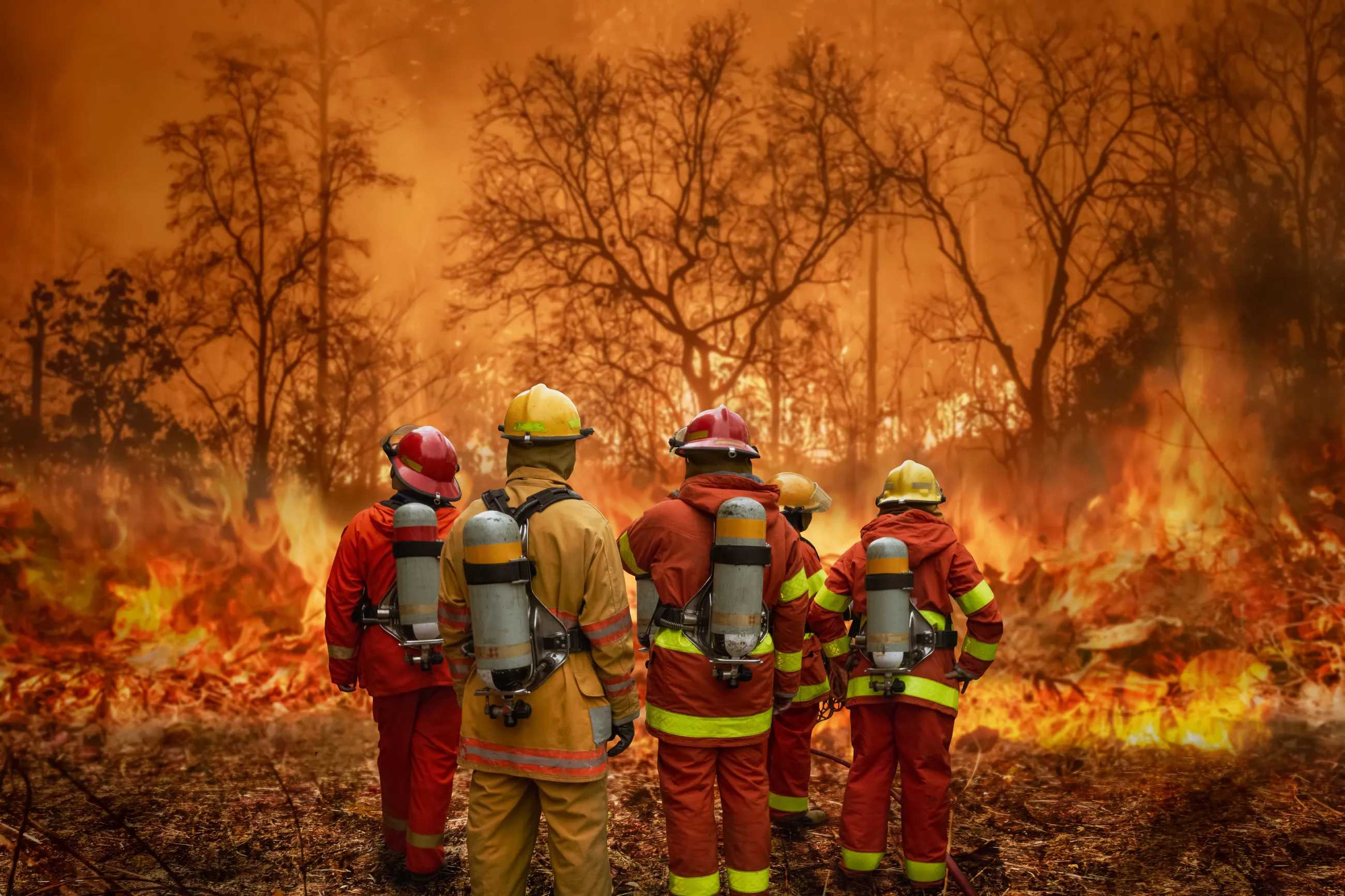August 6, 2024
Federal firefighters have 'grueling' jobs for paltry pay; grassroots organizing works to change pay and benefits

Wildland firefighters are considered a 'national resource,' but many are risking their lives for $15 an hour. (A.S. photo)
Federal firefighters can spend weeks away from home putting out devastating fires while barely making enough money to make ends meet. The mismatch between job demands and pay has caused some firefighters to leave the profession, but other firefighters have organized to change pay and benefits, reports Nathan Pipenberg of Capital and Main. Grassroots Wildland Firefighters "represents a striking example of a growing movement among workers to organize outside the structure of an existing union."
While some new unions start without a broader union's umbrella, GWF is using its members' support to work in tandem with the profession's existing union, the National Federation of Federal Employees, to give the profession a stronger voice. "Firefighters increasingly felt they needed to make themselves heard if they wanted to see change. So far, Grassroots Wildland Firefighters — working alongside NFFE — has proven that point." Max Alonzo, a former firefighter hired by NFFE who helps with legislative plans, told Pipenberg, "I don’t feel like we’d be as far as we are right now if they hadn’t brought national attention to these issues.”
The dual effort is gaining momentum. "When Congress began considering a pay supplement for federal firefighters, whose starting wage is the federal worker minimum of $15 an hour, both the union and Grassroots Wildland Firefighters organized front-line workers to meet with members of Congress and speak at committee hearings and a press conference on the steps of the Capitol," Pipenberg explains. "With pressure came promising results: temporary pay supplements, expiring this September, that currently translate to as much as $20,000 per year. Although it was not the permanent legislation they sought, firefighters saw their starting annual income nearly double, to $51,500."
Even with pay increases, a national discussion about the physical and health risks federal wildland workers endure remains elusive. "The job can be grueling and unusually demanding. Wildland workers are expected to serve as a 'national resource,' available to travel across the country with only a few hour's notice," Pipenberg reports. "Firefighters fell trees, dig fire breaks, and crawl on hands and knees to find hotspots that could ignite. They often sleep outdoors, near the fire and in the smoke."
September will mark the end of the temporary pay supplements, which means the GWF and NFFE continue to lobby. "The groups are pushing for the Wildland Firefighter Paycheck Protection Act, which would make the supplement permanent, and for Tim’s Act, which would raise wages, expand mental health service and offer health insurance to seasonal workers," Pipenberg writes. "Both bills have been introduced in Congress but have made little progress."